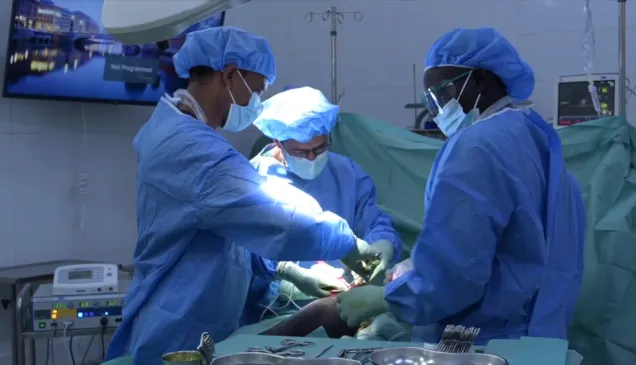The Nile river is the main source of water in this region. Many people consume untreated water directly from the river. Every year, this leads to the spread of water born-diseases.
Clean drinking water, a vital lifeline for the people of South Sudan
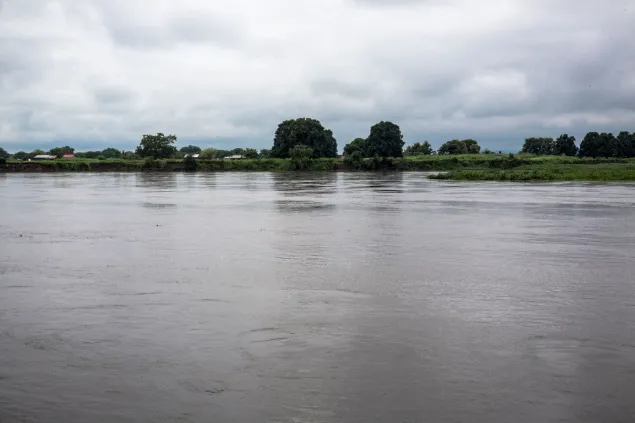
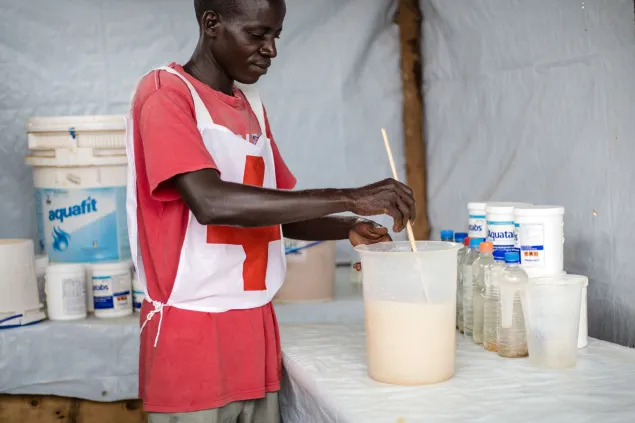
To counter the spread of disease, the ICRC installed a water treatment plant to provide clean water to people in Juba. Here an employee of the South Sudan Red Cross Society trained by the ICRC is preparing chemicals to treat water and make it fit for human consumption.
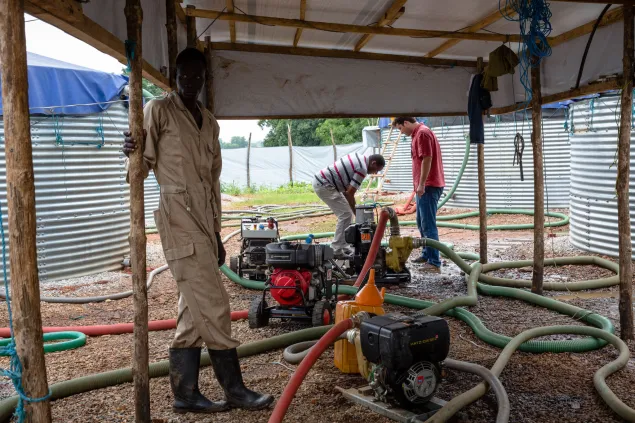
Engineers work to set up the water treatment plant that has helped to counter the spread of Cholera in the area.
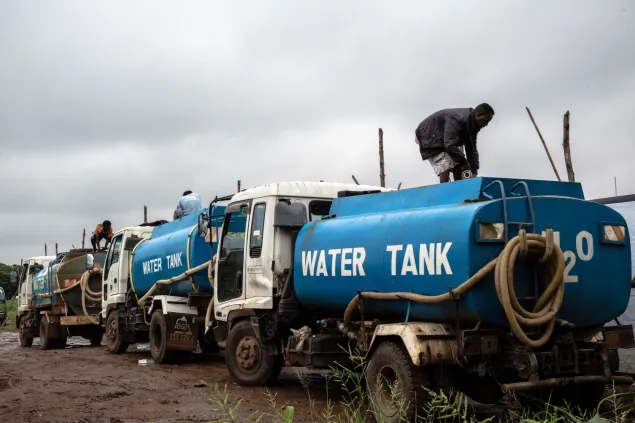
Water tankers line up to be filled with clean drinking water produced by the ICRC supported water treatment plant.
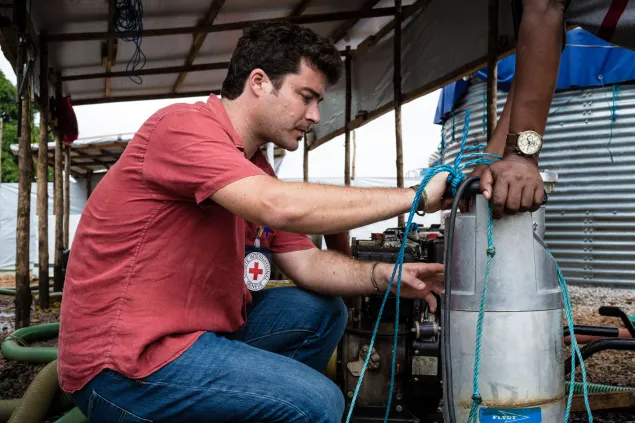
Because the existing water distribution network does not cover all areas in Juba, many people used to rely on distribution by commercial tankers. But the insecurity in the area caused many of them to be stolen or destroyed by bullets.
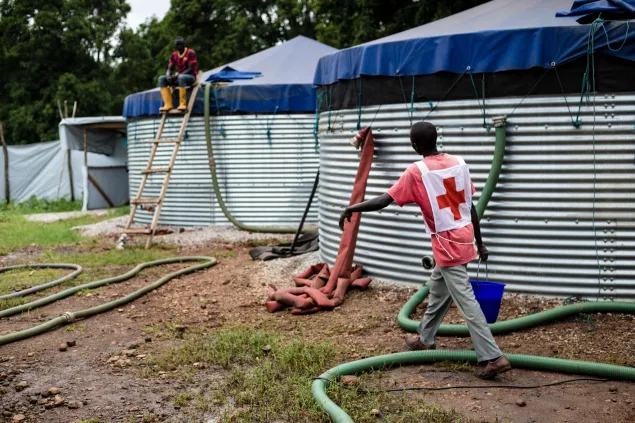
An employee of the South Sudan Red Cross Society trained by the ICRC prepares to add chemicals to water reservoirs to make the water drinkable.
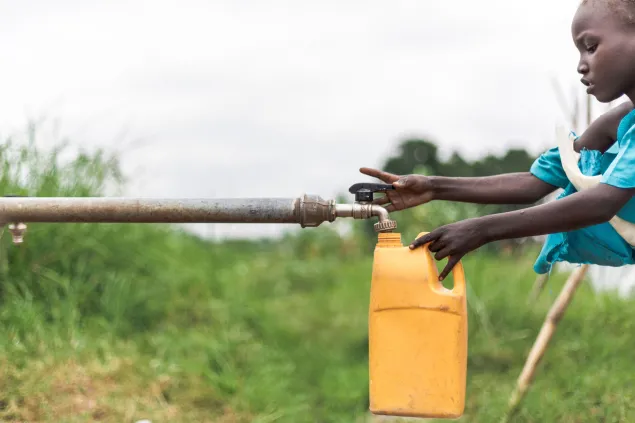
A child collects clean drinking water from one of the ICRC water distribution points. We work closely with the South Sudan Red Cross to manage these distribution points.
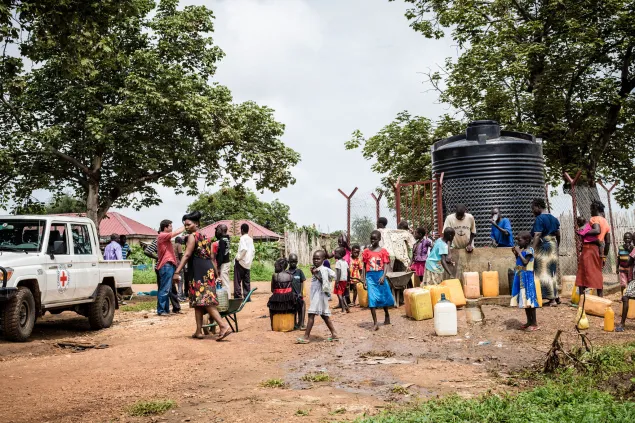
People collecting clean drinking water at one of the water distribution points, installed by the ICRC in cholera prone areas.
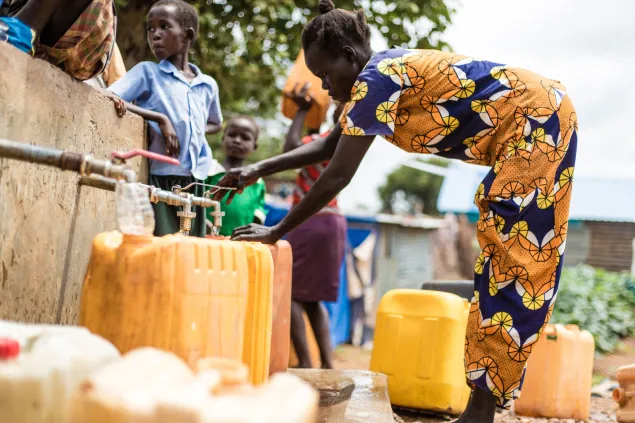
Veronica is just of the many people in Juba who have benefited from the water treatment plant.
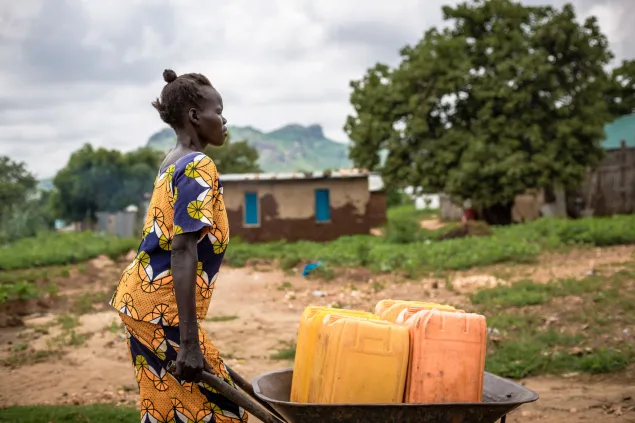
Without water, people can’t maintain proper hygiene, which also has a negative impact on public health. Hospitals and clinics without reliable supply of clean water cannot function.
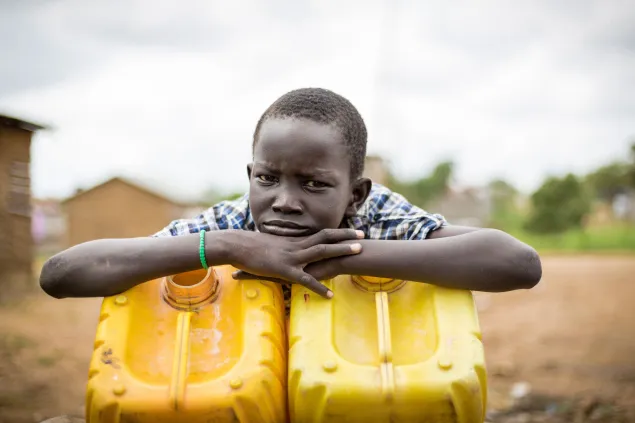
For kids like Georgi, waiting in line is a small price to pay to get clean drinking water at one of the ICRC water distribution points.
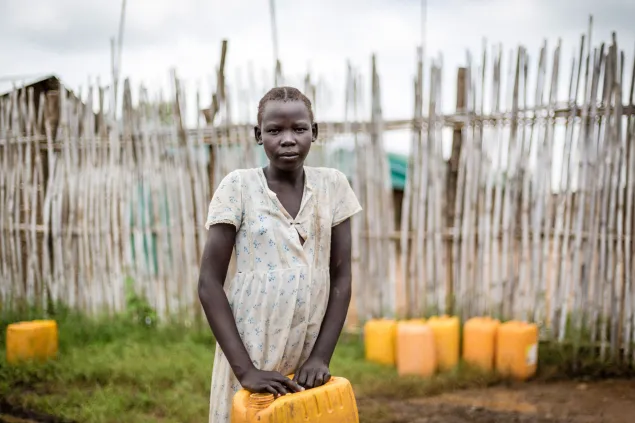
The ICRC water treatment plant produces over 400,000 litres of clean drinking water per day. This means that people like Jennifer have a vital lifeline that helps counter the spread of cholera.
The armed violence and insecurity in Juba has hampered economic activity, causing prices to soar, and making basic goods and services inaccessible to many. Water distribution networks have also been affected and this has led to outbreaks of water-borne diseases such as cholera.
The ICRC responded to this humanitarian situation by installing an emergency water treatment plant in Lologo. This plant produces over 400,000 litres of clean water per day and delivers it to displacement sites and health facilities. The facility is a vital lifeline that helps to counter the spread of cholera in the region.
Working closely with the South Sudan Red Cross, we also installed water distribution points in cholera-prone areas around Juba.



